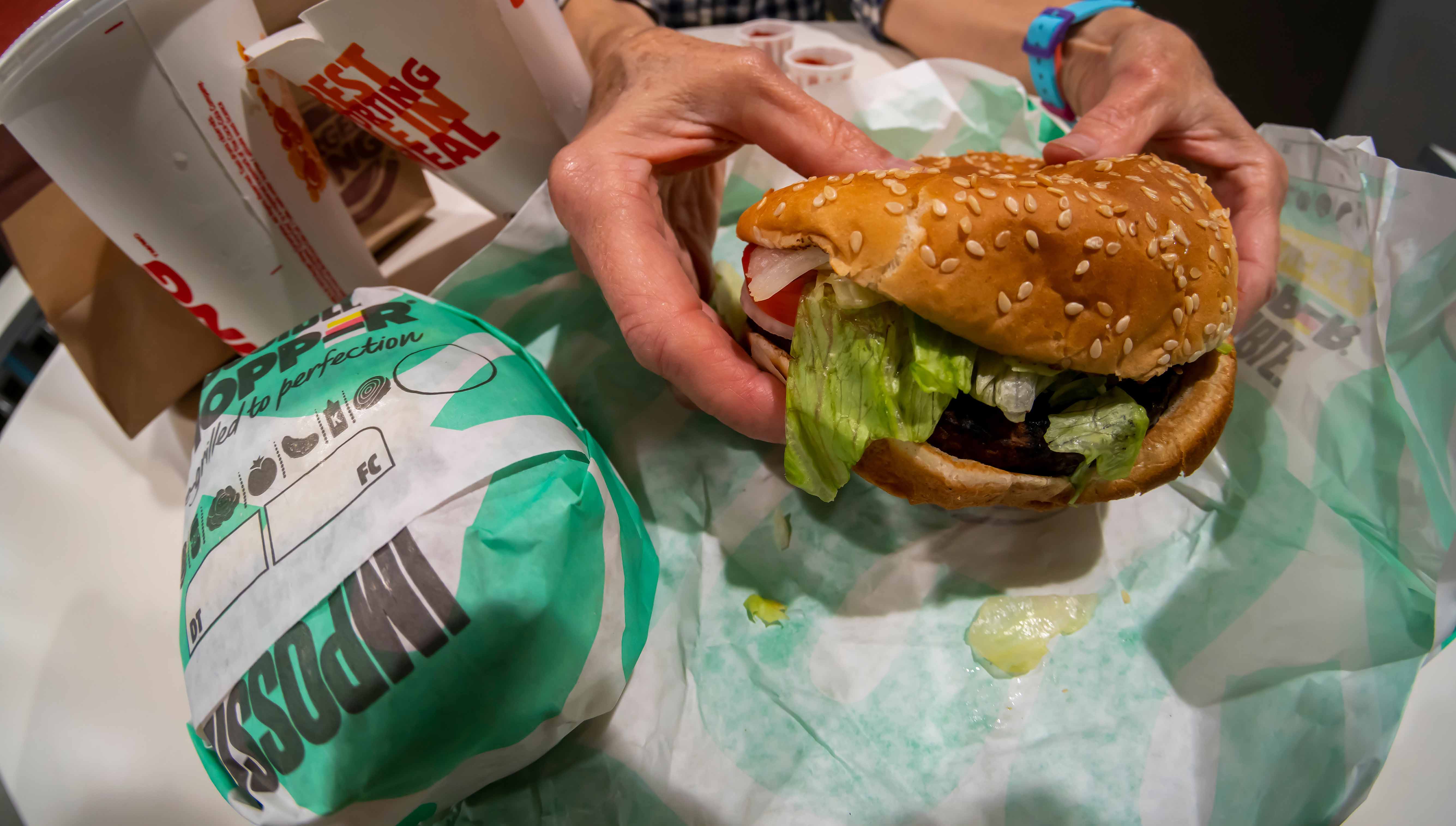
Has Burger King misled its customers? Philip Williams, who is currently suing the fast food chain, believes that the tagline on its Impossible Whopper – “100% Whopper, 0% beef” – is a misrepresentation.
In the lawsuit he filed earlier this month in Miami, Williams argues that Burger King cooks its vegan patties alongside meat. His accusations have since gone viral.
This is a thorn in the side for the chain, whose push into the plant-based market centered on its highly publicized collaboration with Impossible Foods. For the foodservice industry though, there is something far more fundamental at stake: the moral and ethical implication of cross-contamination in kitchens.
Cooking integrity, guaranteed
For William Bender FCSI, founder of restaurant and foodservice consultancy, W.H.Bender & Associates, it’s unacceptable that a transfer of ingredients was likely allowed to take place. “All brands must have marketing integrity, and food preparation and cooking integrity,” says Bender.
“Foodservice equipment and operating procedural changes will be necessary to implement 100% certified standards. Independent foodservice inspections will be required.”
Should that kitchen audit show a problematic situation, Bender recommends an entirely open investigation. “Burger King should invite and include industry FCSI experts and chefs, and food representatives of the vegan community, to rework their back- and front-of-house systems to have a 100% guarantee to all guests.”
Karen Malody FCSI, principal of foodservice consultancy, Culinary Options, agrees that Burger King did not take “a totally ethical stance”.
In all likelihood, she reasons, the chain probably failed to acknowledge, pay for and install a separate grill for this burger, similar to the approach for kosher kitchens.
“In the long run, I believe Burger King missed a huge opportunity to be the quick service restaurant hero by authentically serving to a growing group of customers a legitimately vegetarian or vegan offering,” she adds. “These gaffes are typically quite damaging.”
Burger King did not respond to a request for comment for this article, but the small print on its website says that customers can request “a non-broiler method of preparation”.
For Joseph Schumaker FCSI, principal design consultant, FoodSpace, full disclosure is a key issue. “The simple solution is either ensure proper sanitization in between cooking different products or disclose that you don’t,” he says.
Ethical kitchen design
In addition to total transparency between a brand and its customers, it’s increasingly clear that kitchen design should also stand up to scrutiny on this front. As Bender says, “Nothing should be hidden and all of these steps should be open for review and verification.”
For Malody, “Every menu item ideally requires a certain piece of equipment, which must be considered and strategically introduced into all design efforts and equipment selections.” At this point, she argues, it’s an ethical necessity.
As Malody suggests, we could look to the planning process behind the addition of the Impossible Whopper for ideas as to what happened in the Burger King kitchens. Was every stage of preparation accounted for, every necessary separate grill installed?
This could have implications for deciding to add a new menu item in the first place. Malody has a series of questions that she always poses of a new menu:
- Is it brand appropriate?
- How does that item need to be prepared?
- Will adding the item stress kitchen efficiency?
- Do you have the space and money to add a new piece of equipment just for this one new item?
“Those questions must be answered, or, as we see, results can be brand-threatening,” she says.
Schumaker agrees: “We must provide the right equipment and, in some of these cases, multiple pieces of the same equipment to prevent contamination.”
Burger King must repair their public image as one of the leaders in the fast food sector’s drive into vegan menu choices.
However, for the whole foodservice industry, this is a chance to take stock of the ethical implications of kitchen design. Consultants must apply some searching questions to back-of-house equipment, for clients big and small.
Frances ball
